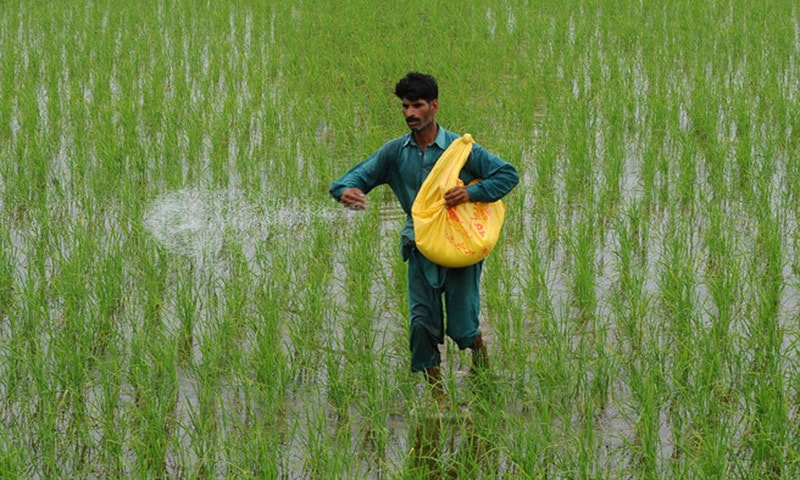ISLAMABAD: The Fertiliser Review Committee (FRC) on Monday directed the provinces to take strict actions against urea hoarders. The directives came amid a looming fertiliser shortage across the country.
The FRC meeting, chaired by Federal Minister for Industries and Production Makhdum Khusro Bakhtyar, sought to allay issues related to supply of crop nutrients. The meeting noted that urea prices were already beginning to increase at the retail end, with buyers paying up an additional Rs120 for a 20kg bag.
The FRC meeting was attended by Minister for Energy Hammad Azhar and Minister for National Food Security & Research Syed Fakhar Imam along with relevant officials and representatives of fertiliser manufacturers.
The meeting was briefed that farmers were getting one urea bag between Rs1,950 and Rs2,000 in different parts of the country whereas the rates should be around Rs1,850.
Fertiliser manufacturers present in the meeting said the ex-factory price was Rs1,798 per bag and other overheads including freight charges, dealers’ margins etc which had not changed significantly.
Regarding the urea supply and demand position in the country, meeting was informed that the data of National Fertiliser Development Company (NFDC) showed an increase in urea sales by 10 per cent during January-October. Fertiliser offtake in 10 months of 2021 was 5.081 million tonnes against 4.626m tonnes during same period last year.
The officials said demand for urea has increased due to the favourable agriculture policies of the government and better farm economics.
The officials presented a report highlighting that different dealers had hoarded around 450,000 tonnes of urea and were gaining exorbitant profits over it.
Mr Bakhtyar expressed concern over the hoarding of an essential commodity for farmers and asked the provincial governments to take strict action against hoarders and those engaged in black marketing of fertilisers.
Meanwhile, fertiliser manufacturers said that there had to be a difference between storage and hoarding as warehousing was part of the supply chain.
The meeting was informed that traditionally the highest fertiliser offtake was witnessed in December which is up to 800,000 tonnes. However, this year it was expected to be between 800,000 and one million tonnes.
The fertiliser manufacturers highlighted that the shortage was not due to supply constraints but due to high demand. The manufacturers asked the three ministers present there to consider various proposals forwarded to the Ministry of Industries and the Ministry of National Food Security & Research for improving the supply side.
Published in Dawn, November 23rd, 2021













































